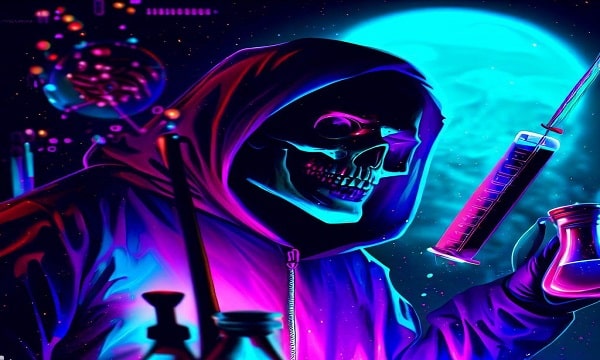Totally Science: How to Make Science Fun and Engaging for Everyone

People often consider science dull or hard; only experts can understand it. But science is a fun and interesting way to learn about the world and discover new things. Totally science is more than memorizing facts and numbers. It is also about asking questions, putting ideas to the test, and coming up with answers. Totally science isn’t for scientists, though. Anyone who wants to learn more about themselves and the world around them can do Totally science.
Spark your interest in Totally Science by finding topics that appeal to you and relate to your everyday life.
Learn science by conducting experiments, making observations, and collecting data.
Share your science with others by telling them what you’ve learned, working with your peers, and joining online groups.
Enjoy science as a hobby by exploring nature, visiting museums, reading books, and watching videos.
By following these steps, you will discover that science is not only awesome but also accessible and fun. Let’s get started!
Introduction: Totally Science
Science is often seen as a boring or difficult subject that only experts can understand. But science is an exciting way of exploring the world and discovering new things. Science is not about memorizing facts and formulas but asking questions, testing ideas, and finding solutions. Totally science is also not for scientists but for everyone who wants to learn more about themselves and their surroundings. In this article, we will show you how to make science fun and engaging for everyone, whether you are a student, a teacher, a parent, or a curious person.
Spark your interest in science
One of the best ways to make science fun and engaging is to find topics that appeal to you and relate to your everyday life. Science is everywhere, and you can find it in the most unexpected places. For example, you can learn about chemistry by cooking, physics by playing sports, biology by gardening, astronomy by stargazing, and so on. You can also look for science news and stories that catch your attention and make you wonder. Many websites, podcasts, magazines, and blogs talk about a wide range of Totally science topics and problems. You could also ask your friends, family, teachers, or leaders what they are interested in or curious about in science. You will be more interested and motivated to learn more about science if you can find a personal link to it.
You can also get interested in science by asking yourself questions and problems that must help you think and reason scientifically. You can use your ideas and imagination to develop questions that interest you or look for puzzles and questions that test your knowledge and skills. For example, you can try to answer science-related riddles, brainteasers, logic games, trivia quizzes, or escape rooms. You can also take part in science-related challenges, competitions, or events that take place online. By giving yourself questions and problems that need scientific thinking and reasoning, you will improve your critical thinking, problem-solving, and logical skills and your interest in and faith in science.
Learn science by doing
One of the most effective and enjoyable ways to learn science is by doing science. ToScience is not a collection of facts and theories but a process of inquiry and discovery. By conducting experiments, making observations, and collecting data, you can learn science by doing science. You can design your experiments, or you can follow existing ones that are suitable for your level and interest. You can use simple tools and materials that you can find at home, school, or online, or more advanced tools and apps that you can find in labs, libraries, or markets. You can also use online platforms and apps to simulate experiments, visualize data, and interact with virtual environments. By doing science, you will learn how to apply the scientific method, use scientific tools and techniques, and interpret and communicate your results.
Another way to learn science by doing is to observe and explore the natural world around you. Science is found in labs, books, nature, and everyday phenomena. By observing and exploring the natural world around you, you can learn science by doing science. You can use your senses and instruments to observe the weather, the seasons, the plants, the animals, the stars, and other aspects of nature. You can also use online resources and guides to identify, classify, and document what you see. You can also conduct citizen science projects that involve collecting and sharing data with other people and organizations for scientific research and conservation. By observing and exploring the natural world around you, you will learn how to appreciate and understand the diversity and complexity of life on Earth.
Share your science with others
One of the most rewarding and inspiring ways to make science fun and engaging is to share your science with others. Science is both a personal try and a social and collaborative one. You can make science fun and engaging by sharing your science with others. You can communicate your findings, questions, and ideas with friends, family, teachers, or mentors. You can also collaborate with peers, experts, or mentors who share your interests and goals. You can join online communities, forums, groups, or clubs dedicated to science topics and activities. You can also participate in science fairs, festivals, events, or exhibitions that showcase your work and celebrate your achievements. By sharing your science with others, you will learn how to express yourself, give and receive feedback, and inspire and be inspired by others.
Another way to share your science with others is to contribute to advancing and disseminating scientific knowledge and innovation. Totally science is a source of learning and enjoyment and a force for positive change and impact. By contributing to advancing and disseminating scientific knowledge and innovation, you can make science fun and engaging. You can use your skills and talents to create solutions for real-world problems and challenges that affect you and others. You can also use your voice and influence to advocate for Totally science education, awareness, and literacy. You can also support and donate to organizations and causes that promote and fund scientific research and innovation. By contributing to advancing and disseminating scientific knowledge and innovation, you will learn how to apply your science to make a difference in the world.
Enjoy science as a hobby
One of the most fun and relaxing ways to make science fun and engaging is to enjoy Totally science as a hobby. Science is not only a subject or a career but also a passion and a lifestyle. Enjoying science as a hobby can make Totally science fun and engaging. You can learn more about your science-related interests and hobbies, such as photography, music, art, games, cooking, farming, sports, etc.
You can also find new hobbies and activities related to science, such as robots, code, origami, knitting, puzzles, magic, and so on. You can also visit museums, zoos, aquariums, planetariums, parks, and other places showing off science. Totally science. You can also read books and watch movies with science fiction, fantasy, comedy, drama, or documentaries. Enjoying science as a hobby will teach you how to have fun and relax with Totally science.
Another way to enjoy Totally science as a hobby is to celebrate and appreciate the beauty and wonder of science. Science is a source of knowledge and understanding, awe, and inspiration. By celebrating and appreciating the beauty and wonder of science, you can make Totally science fun and engaging. You can marvel at the amazing phenomena and patterns that occur in nature and the universe. You can also be amazed by the amazing things scientists and other inventors have made and found throughout history and worldwide.
You can also show thanks and respect to those who have helped science move forward and reach more people. By celebrating and appreciating the beauty and wonder of science, you will learn how to be amazed and inspired by science.
Conclusion
Science is a fun and interesting way to learn about the world and discover new things. Science is not for experts. Anyone who wants to learn more about themselves and the world around them can do science. We’ve shown you in this article how to make science fun and interesting for everyone, whether you’re a student, a teacher, a parent, or someone who wants to learn more. We have shared some tips and resources on how to:
– Spark your interest in science by finding topics that appeal to you and relate to your everyday life.
– Learn science by doing by conducting experiments, making observations, and collecting data.
– Share your science with others by communicating your findings, collaborating with peers, and joining online communities.
– As a hobby, you can enjoy science by finding things you like to do that involve science and by enjoying the beauty and wonder of science.
By following these steps, you will discover that science is not only totally science awesome but also accessible and fun. We hope you have enjoyed this article and learned something new. Now go out there and have fun with science!







